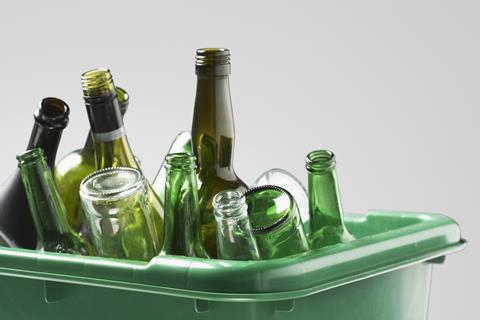
The government’s new EPR packaging fees will whack up to 12p per unit on products when they come into force this year, exclusive figures obtained by The Grocer reveal.
The figures from Valpak, by Reconomy’s PackFlow database, show what industry bosses described as the “huge” cost of the scheme, with Defra having unveiled new estimates for the base fees companies will face over the Christmas period.
Valpak’s table of more than 40 product categories, representing nearly 60% of the estimated £1.5bn cost of EPR on the industry, shows spirits at the top with glass bottles for the product to be hit by an average of 12.2p per unit.
That is closely followed by wine, having cost increases of 10.4p and after that water and soft drinks in glass both coming in at 6.6p.
Other materials are much further down the table, with products such as canned food, cereals, yoghurts and ready meals all coming in below 2p per unit of costs from EPR.
The figures come as Tesco boss Ken Murphy today said he wanted to work with the government to mitigate the impact of EPR, as well as Defra’s other flagship scheme – the deposit return scheme, due to launch in 2027 – including looking at potential changes to the timeframe because of the impact on inflation.
Defra, which has said it expects 80% of the costs of EPR to be passed on to the consumer, published its latest estimates in December, with the first invoices expected to land on producer and retailer desks in October.
That has sparked a major backlash from drinks producers over the estimated cost for glass, which has seen its estimate swing back up after a furore last year appears to have seen a backtrack from Defra.
With its original summer estimates suggesting EPR fees for the material could be as much as £330 per tonne, the September iteration fell to a maximum suggested fee of £115 per tonne. Now, though, the figure for glass in the latest estimate has shot up to £240 per tonne.
“Defra’s latest estimate for forecast EPR fees for glass of £240 per tonne has come as an unwelcome shock for wine and spirits businesses across the UK,” Miles Beale, chief executive of the Wine and Spirit Trade Association, told The Grocer.
“It is substantially higher than the mid-point of previous estimates, which will fail to reassure WSTA members that the EPR scheme is in any way ready to be introduced in less than three months’ time.
“The government seems hell bent on imposing yet more burden on a sector already suffering from higher duty rates, increased taxes and other business costs introduced in October’s Budget.”
The real cost of EPR
The British Beer and Pub Association (BBPA) has written to the government calling for an “urgent review of the scheme”, which it said would deliver a massive blow to the hospitality sector.
Ian Bray, chief executive at Fentimans, said the cost of EPR would be crippling to producers and inevitably lead to increased inflation.
“With the increased Employers NI and minimum wage increases it’s simply too much in one go,” he said.
“The only outcome I can see will be restricted economic growth, increasing inflation and enduring poor consumer confidence.
“We have to delay EPR until 2027 to have the best chance of success. We all want the same outcome, it’s just that the current timing and implementation plan for EPR is deeply flawed.”
Pev Manners, managing director of Belvior Farm, claims EPR will cost the company £750,000 while adding 10% onto the price of a bottle and wiping up to 80% off its profits.
“What is clear is that there are flaws in the government’s current views on the circular economy,” he said. ”We all want to support recycling and the green agenda, but it needs to be a level playing field and currently the legislation is anti-competitive as PET and cans are not included.
“Because plastic bottles are not in EPR, this whole policy as it stands will just increase the amount of plastic sold which then can’t be recycled. This plastic is not making it back into the circular economy due to lack of suitable infrastructure. Plastic recycling plants have been closing because oil price is low and virgin PET is cheaper than RPET.
“If DRS is now going to be delayed, which seems probable given the Welsh attitude, let’s get plastic and cans back into EPR. Unless this happens, we can’t meet the green economy objectives.”
Read more: Delay EPR or face the fallout in jobs and growth
Jim Bligh, director of corporate affairs and packaging at the FDF, said the new figures showed the “huge cost” of EPR for manufacturers, but welcomed the clarity provided by Defra’s new figures.
“As an industry, food and drink manufacturers are embracing EPR and the opportunity to revolutionise the UK’s recycling system, while ensuring we have access to the recycled content we need to meet our own sustainability goals.
“But this comes with a huge cost for business, with UK food and drink manufacturers committing more than £1bn a year to EPR from next October.
“Until now, they’ve been doing this without clarity from government on the EPR fees they’ll pay next year and, as a result, without clarity on the actual cost of their products. Defra’s confirmation of more specific fee estimates is therefore welcome, as it will give businesses the certainty they urgently need about the costs they’ll be facing from next year.
“Now that we have this clarity, it’s vital that Defra works with producers – who are now legally responsible for improving the UK’s recycling rates – to ensure that this multi-billion-pound investment produces real results for the nation.”
Valpak chief executive Steve Gough said he believed the clarity provided by the new estimates would be “welcome”.
He revealed last year Valpak had 19,000 queries abut EPR from companies, with “unprecedented” confusion over the impact they faced.
“We can now start to estimate what this means on a per-unit basis, and those are the things that will ultimately see the impact of this for consumers.”







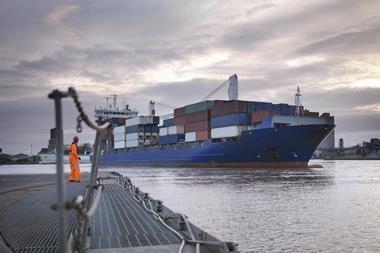





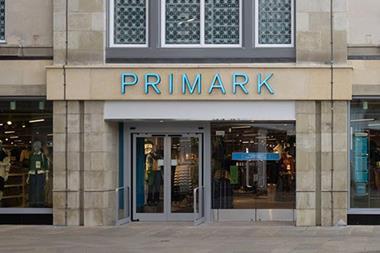
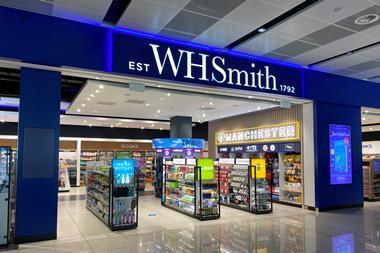
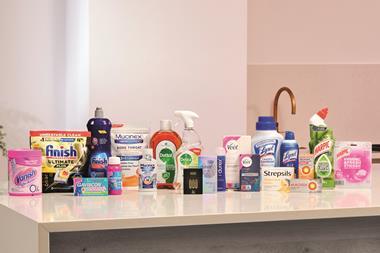



No comments yet